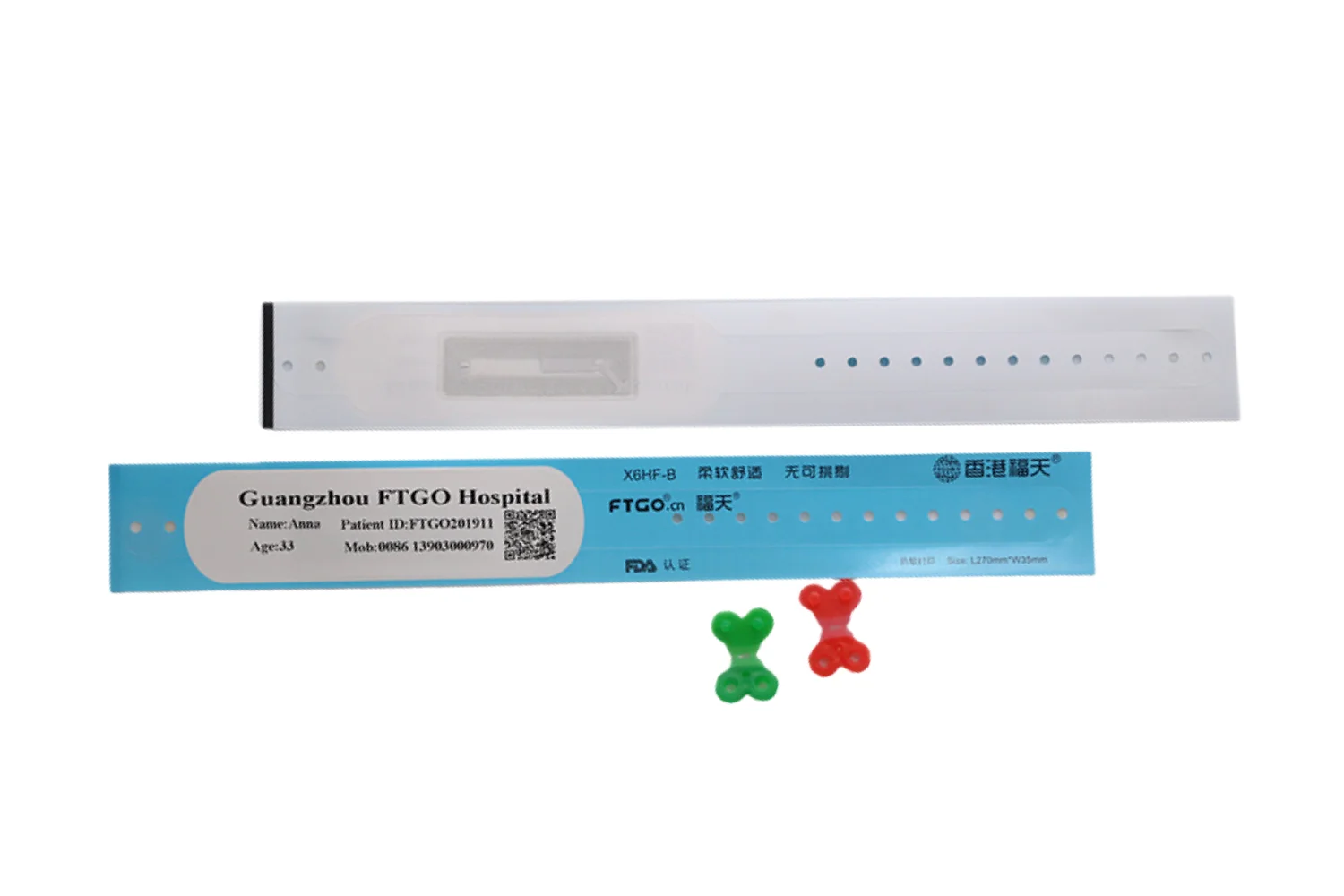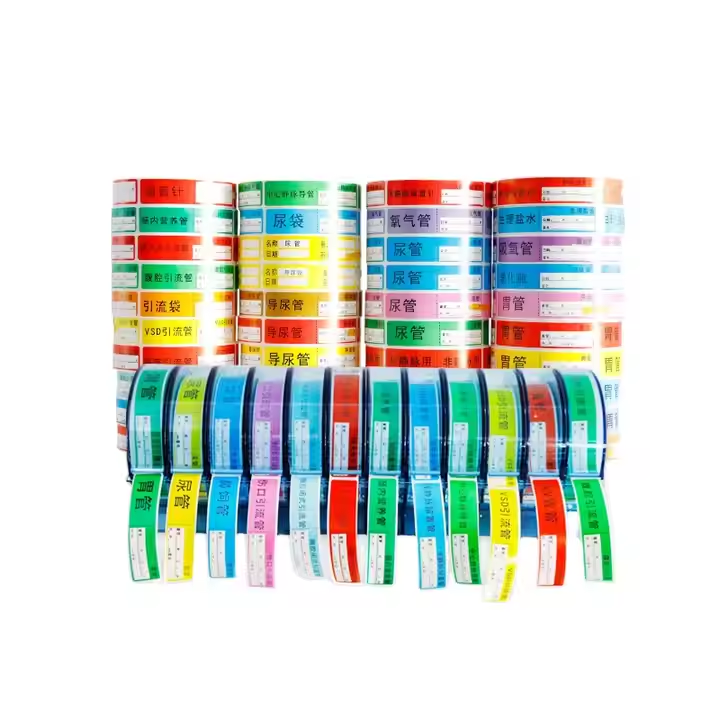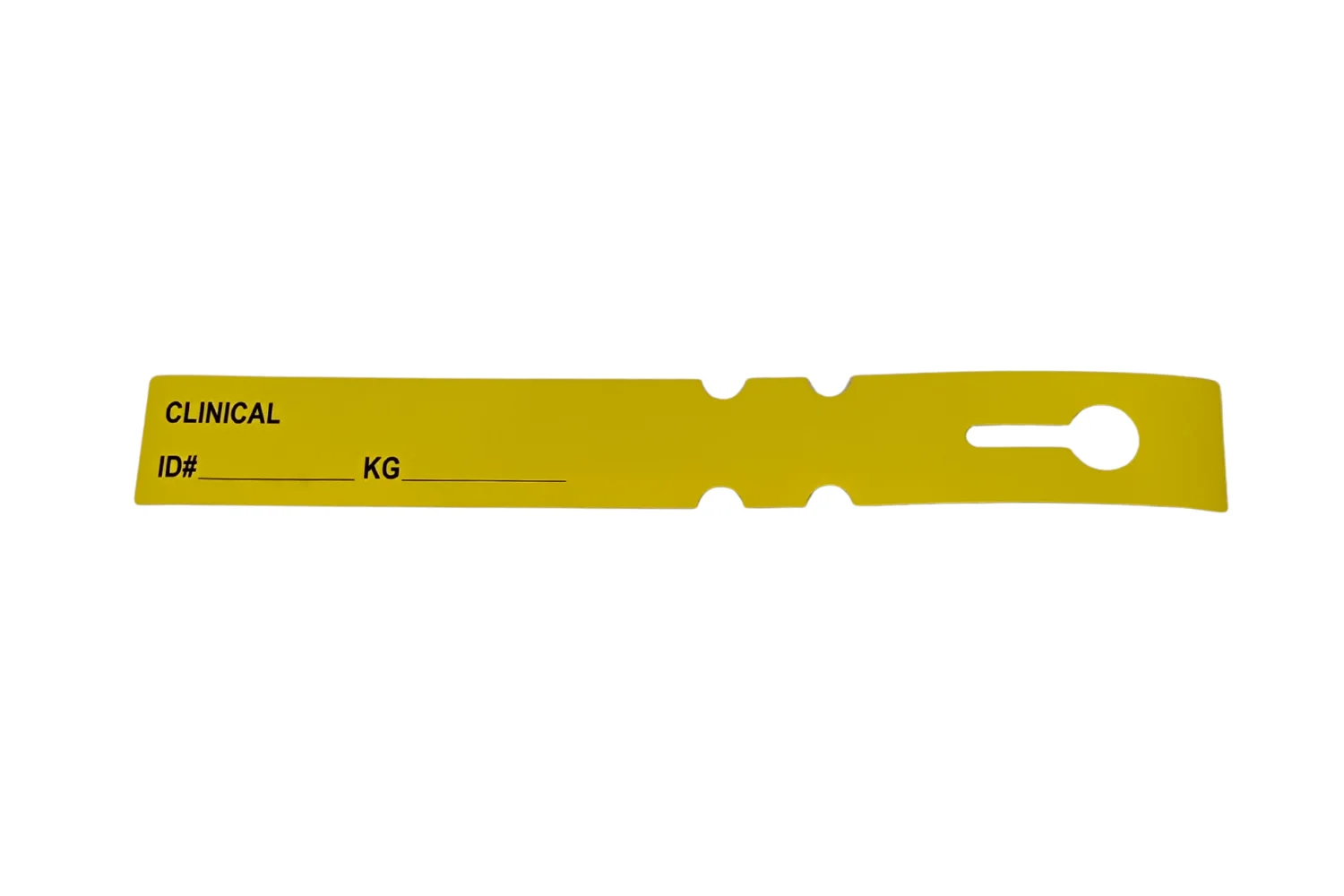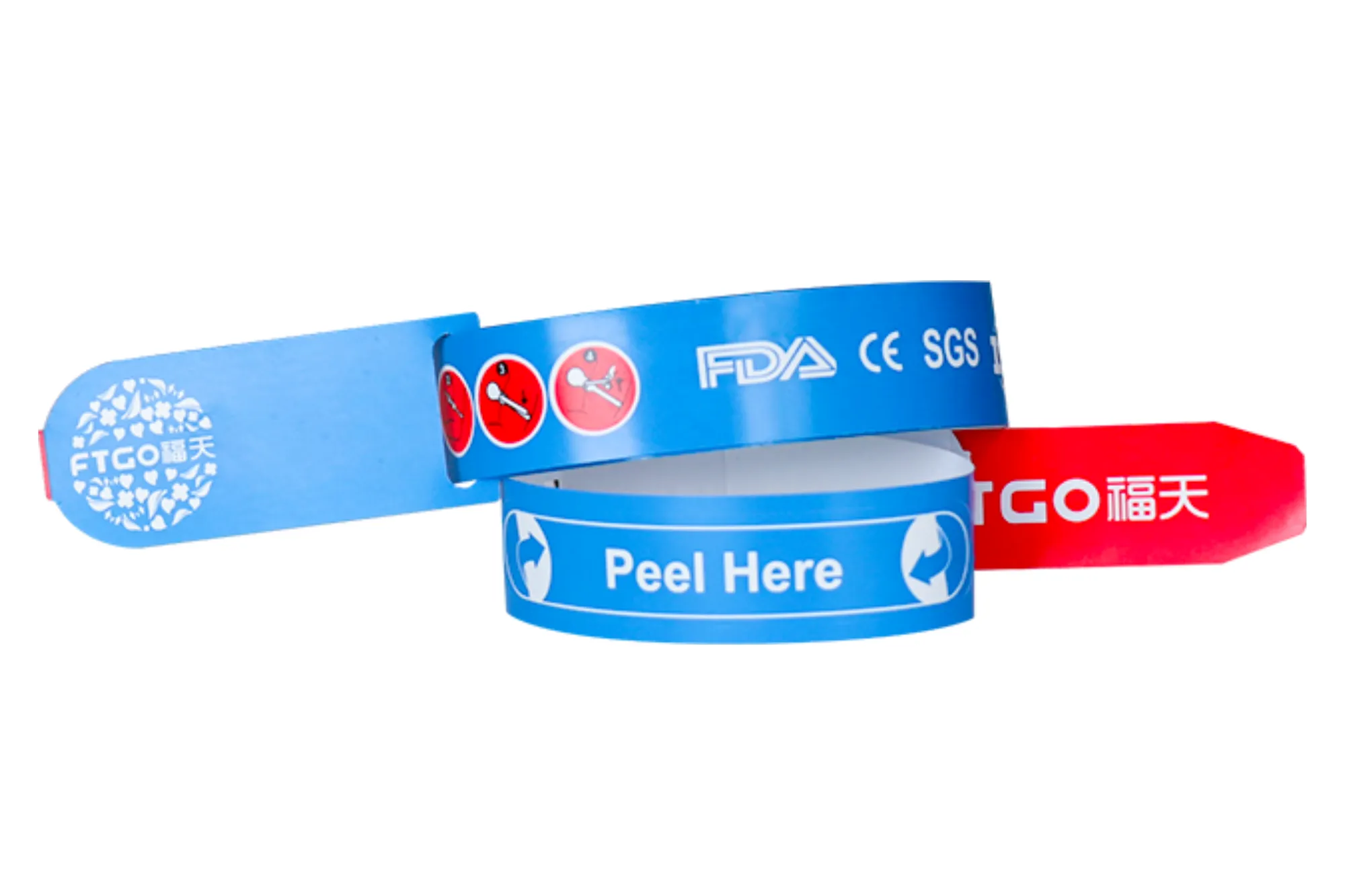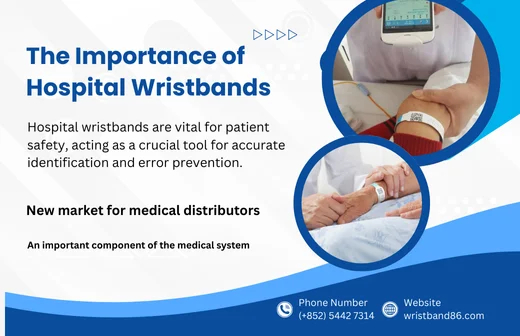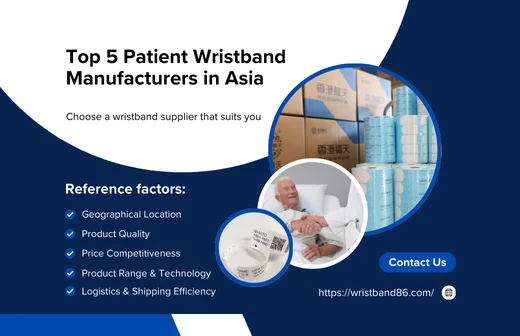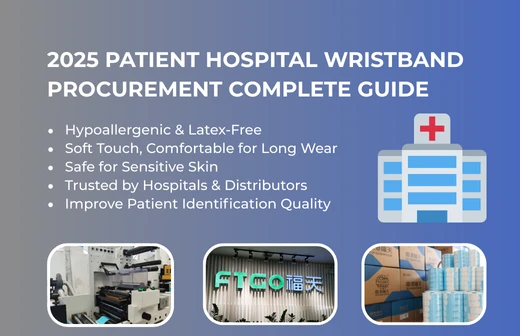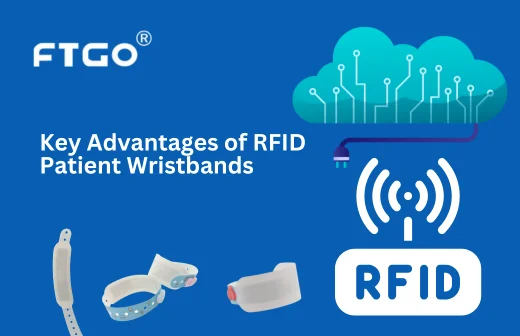Hospital Direct Thermal vs Thermal Transfer Wristbands – How to Choose for Wholesale Buyers?
Introduction
Hospital wristbands are essential for accurate patient identification and have become standard equipment in most healthcare facilities. For distributors and wholesale buyers, selecting the right wristband goes beyond price—it directly impacts the quality of service you provide to hospitals. Choosing the right product ensures you meet hospital needs and helps establish long-term partnerships.
The two most commonly used printing methods for hospital wristbands are:
Both methods are widely adopted, but each comes with its own advantages and limitations. So the key question is:
Thermal Wristbands vs. Thermal Transfer Wristbands – Which One is Better for Wholesale Purchases?
In this guide, we’ll compare the two printing methods, highlight their features, and provide practical insights to help you make the best choice for your wholesale business.
What is Thermal Printing?
Definition & How It Works
Thermal printing uses heat-sensitive material that darkens when exposed to heat. It doesn’t require ink or ribbons, making it a straightforward and cost-effective solution.
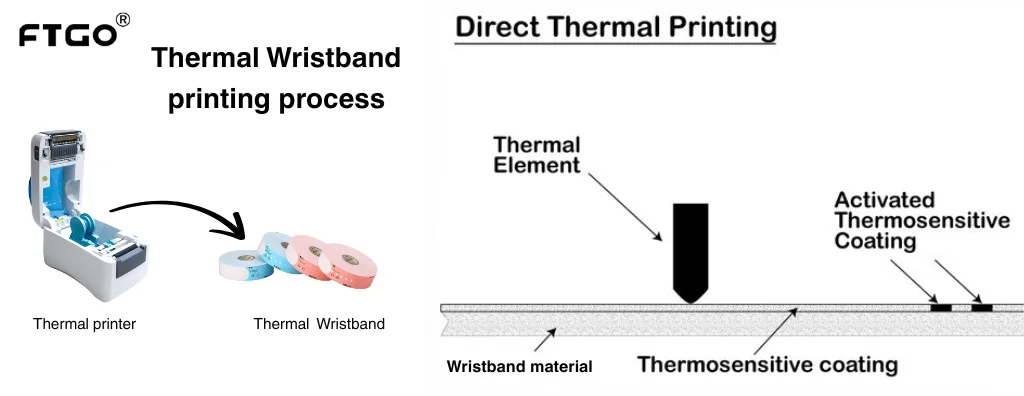
Key Features:
Fast Printing Speed: Ideal for high-volume environments that need quick turnaround.
No Ribbon Required: Lower consumable cost and simpler maintenance.
Pros and Cons:
Pros:
Simple to operate
Cost-effective for bulk usage
Cons:
Limited durability
Print fades when exposed to alcohol, cleaning agents, or extended wear
What is Heat Transfer Printing?
Definition & How It Works
Heat transfer printing applies ink from a ribbon onto the wristband material using heat and pressure. This creates a durable, long-lasting print that withstands harsh hospital conditions.
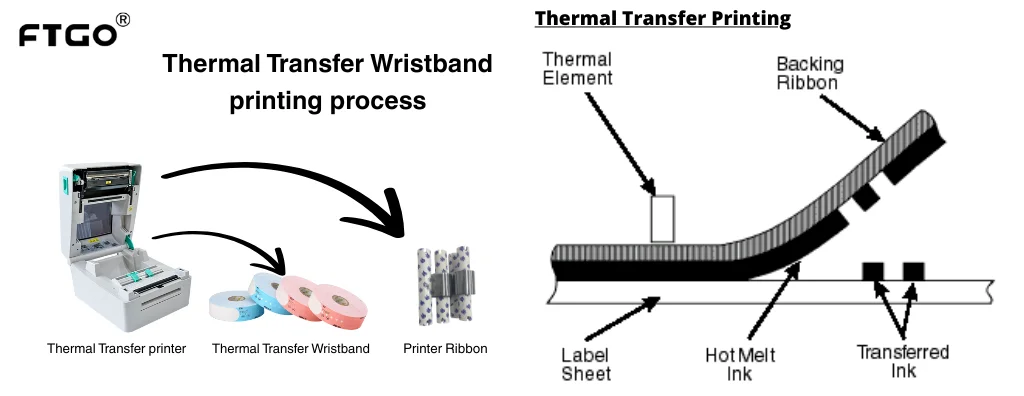
Key Features:
High Print Quality: Sharp, clear text and barcodes for easy scanning.
Long-Lasting: Resistant to smudging and fading, even with disinfectant exposure.
Pros and Cons:
Pros:
Exceptional durability
Ideal for long-term patient stays
Cons:
Requires ribbons, adding to the consumable cost
Slightly higher printing expense compared to thermal
Key Differences Between Thermal and Heat Transfer Printing
| Feature | Thermal Printing | Heat Transfer Printing |
|---|---|---|
| Print Quality | Moderate | High |
| Durability | Short-term (14–30 days) | Long-term (30+ days) |
| Best Use Cases | Short stays, outpatient | Extended stays, complex care |
| Cost | Lower | Higher |
| Supplies Needed | No ribbon | Requires ribbon |
*Note: These durability ranges are based on our standard hospital wristbands. Other brands may not achieve the same longevity.
Which One Should You Choose for Wholesale?
Thermal Printing is ideal for:
Hospitals with a high volume of short-stay patients (outpatient, day surgeries)
Buyers prioritizing speed and lower consumable costs
Environments where wristbands are only needed for 14–30 days
Heat Transfer Printing is best for:
Hospitals treating long-term patients
Wristbands that need to resist alcohol cleaning and frequent handling
Buyers requiring permanent, high-clarity barcodes and text
Other Factors to Consider Before Wholesale Purchase
Production Capacity: Can your supplier handle large-volume orders consistently?
Printer Compatibility: Ensure wristbands work with major wristband printers.
Customization Options: Logos, colors, barcodes, and QR codes for better branding.
Inventory & Lead Time: A reliable supply chain avoids stockouts.
Conclusion & Next Steps
Both Thermal Printing and Thermal Transfer Printing have their place in hospital operations. The best choice depends on:
Patient Stay Duration (short vs. long-term)
Budget and Cost Priorities
Durability Requirements
If your hospital handles a high volume of short-term patients, thermal wristbands offer cost efficiency and speed. For long-term patients or environments that require durability, heat transfer wristbands are the better choice.
Looking to source hospital wristbands for your clients or hospital partners? Contact us today to discuss bulk orders, customization options, and tailored solutions that optimize patient identification and improve operational efficiency.
Share this article
Follow us
Latest articles
November 29, 2025
November 29, 2025
November 29, 2025

